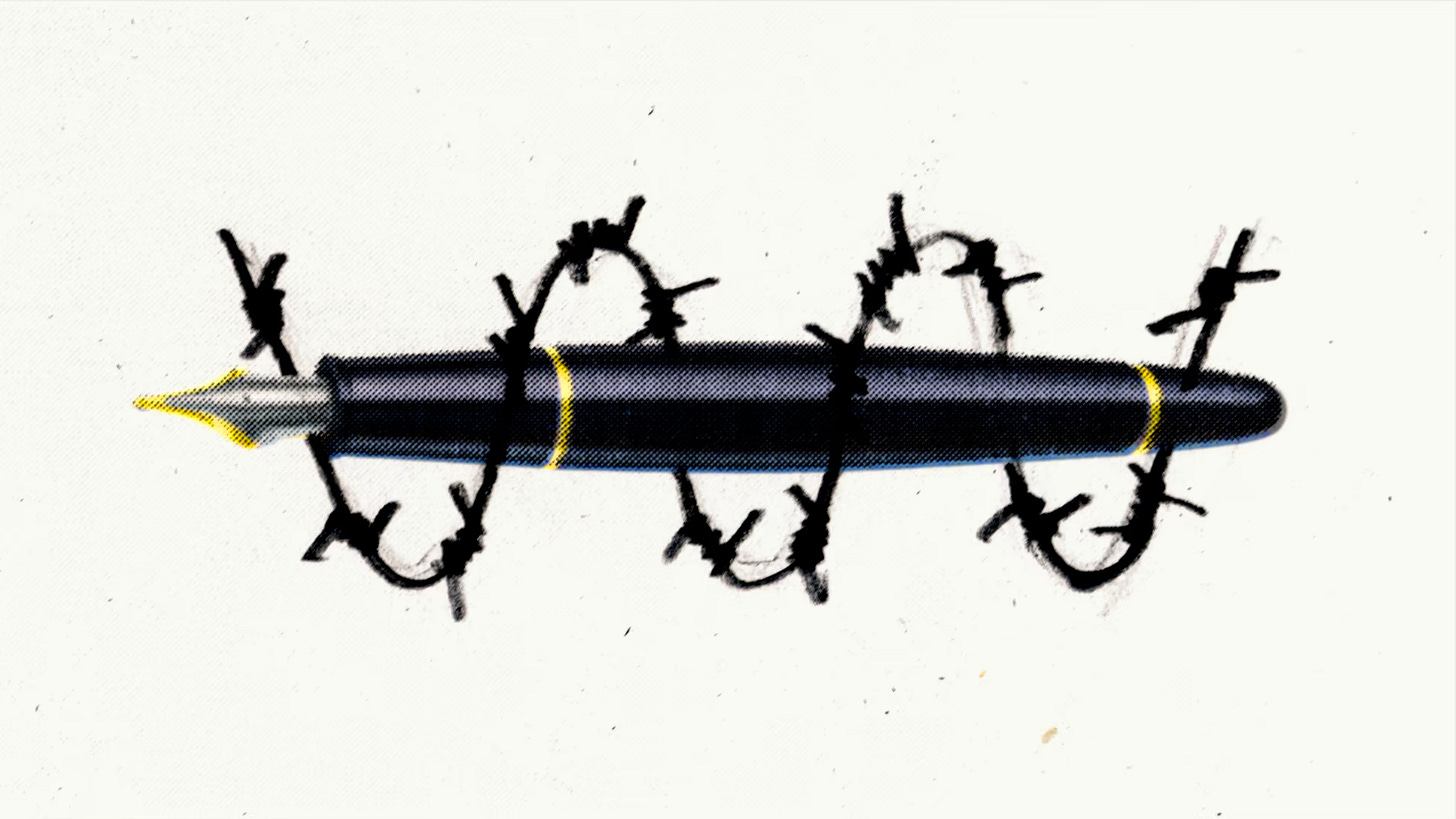I used to think not fitting in was a weakness, but now I know it's a strength
This week on our Substack, Joanna Rose writes about growing up “stuck between two worlds,” and how the experience of being a “third culture kid,” though difficult at times, gave her “an adaptability—a facility for code-switching, for learning about, understanding, and connecting with different people at a deeper level than most.”
For the first time in my life, I had begun to understand myself. No wonder I always felt slightly out of place. No wonder I felt different. The more I learned about third culture kids—or in my case, third culture adults—the more I started to see that the differences I had struggled with throughout my life were not all bad. In fact, those differences made me unique.
America doesn’t want a civil war
For Unherd, FAIR Advisor Batya Ungar-Sargon writes about the perception that America is more divided than ever, and the ways that perception—and its reinforcement by our media and publishing institutions—is “hyperbolic.”
It’s true that our political and media elites, and those who run corporations and Big Tech companies, are increasingly partisan. But that’s because they have a lot to gain — in terms of money and power — from making Americans hate each other. Nevertheless, despite the billions and billions of dollars being spent trying to divide us, polarisation remains an elite phenomenon. When it comes to the fundamental values this nation was founded on, Americans are much more united than they are divided.
I Thought I Was a Skeptic, But I Fooled Myself
For his Center for Inquiry blog, Searching for Better Angels, FAIR Advisor Angel Eduardo writes about his slow progression from a credulous youth to a skeptical young man—and the dangers of skepticism going so far that it makes us credulous all over again.
Skepticism is a valuable thing, and self-skepticism is probably its most critical manifestation. We are hard-wired for pattern seeking and pattern making. It’s an ability that has brought us great fortune, but which misfires far more than we often like to admit. In the realm of empirical knowledge, we’re fortunate enough to have devised science as a tool to mitigate our subjectivity. But in the social and interpersonal arena, where mere data can’t hold the kind of sway that a good story does, humility is the thing we really need to help see us through.
For the Daily Beast, FAIR Advisor Jacob Mchangama writes about the arrest of British activist Symon Hill for the crime of “voicing their criticism of the institution of monarchy over the last few days,” noting that “the British crackdown on republican protests highlights a fundamental difference between British and American conceptions of free speech.”
In a pamphlet attacking the Sedition Act, the Virginian lawyer George Hay wrote that a law against sedition was natural in Britain “where privilege and monopoly form the basis of the government” but, “in the United States it is disgraceful.”
…But even today, the right to peaceful protest is challenged as state legislatures have proposed or adopted a flurry of laws limiting protest couched in wording that is frequently vague and undefined, and thus posing a risk to hard won First Amendment freedoms.
My High School’s ‘Antiracist’ Agitprop
For the Wall Street Journal, Yale freshman and FAIR Fellow Sahar Tartak writes about her experience as she began to notice “how illiberal [her] liberal high school had become,” and the ways she and other students were “berated, bullied and insulted” at for voicing dissent towards the school’s “anti-racist” policies and programs.
I decided to tell the school board about my treatment at the hands of teachers and school officials. I was nervous but I made my case. The response, to my shock, was a standing ovation. I also received many expressions of support from fed-up parents, from teachers who silently abhorred their one-sided “professional development” courses, and from students who had been punished by administrators for questioning the orthodoxy of systemic racism.
The Move to Eradicate Disagreement
For The Atlantic, Graeme Wood writes that “there are ways to suppress free thought, other than with a knife to the eyeball of a novelist, or with laws that limit what can be said in schools.”
[Adam] Serwer says Rushdie’s persecutors and these libs are different because they use different means. I say they resemble each other because they have the same ends—namely, to eradicate rather than encourage disagreement. Whether one does so by firing squad or just plain firing is a distinction that matters. Most college students, according to a FIRE report published this week, do not believe that speakers who hold various conservative beliefs should be allowed on campus; I am grateful that these students do not (yet) run a whole country, as the ayatollahs do. But each group is striving to purify itself, to scare off deviance, to mark dissent from its orthodoxy as so vile that it cannot even be discussed, and must instead be rendered nonexistent.
On Student Loan Forgiveness, Congress Must Act
For Chalkboard Review, Robert Evans writes about the recent announcement from President Biden that “Americans earning less than $125,000 annually ($250,000 for households) would receive up to $10,000 in federal student loan forgiveness, with Pell Grant recipients having $20,000 forgiven.” Evans discusses the issues with this policy, and “the deep unfairness that many feel when watching across-the-board loan forgiveness.”
The Democratic party currently holds the presidency, along with both houses of congress, giving them the ability to enact any legislation they choose. The result is that Biden, using executive power to enact such a divisive policy, has led many to rightly question whether he has misused the power of his office to protect political allies and buy votes ahead of the midterm elections where Democrats are largely expected to lose their majority. There are many pros and cons of this student loan forgiveness, but removing the decision from Congress prevents the debate from happening among the American public, where it belongs. Thus, Congress must act.
Addiction To Perfection: Black Swan & The Anti-Woke Wars
For her Substack, Chloé Valdary writes about the film Black Swan, its themes of duality and the tension between light and dark within oneself, and the ways an “addiction to perfection” has caused our culture wars to polarize and become destructive to us all.
The political polarization of our time and the need to constantly shape one’s image after the approval of whoever is on social media — and this is a temptation I personally feel as someone who is active on social media — are both illustrations of this trend. It becomes all too easy to sacrifice authenticity on the altar of being liked, especially when the practice of nuance is not only not in vogue, but considered, in some cases to be a demonstration of the countenancing of evil itself. We see this in the binary, all-or-nothing thinking that tempts people to align with their political teams, come hell or high water, as a matter of affirming their own worthiness, and moral salvation. Both those who identify as woke and those who identify as anti-woke fall into this trap. All the more so because not only are they at war with each other; they are at war with different aspects of themselves.
Join the FAIR Community
Become a FAIR volunteer or to join a FAIR chapter.
Join a Welcome to FAIR Zoom information session to learn more about our mission, or watch a previously recorded session in the Members section of www.fairforall.org.
Take the Pro-Human Pledge and help promote a common culture based on fairness, understanding, and humanity.
Join the FAIR community to connect and share information with other members.
Share your reviews and incident reports on our FAIR Transparency website.












